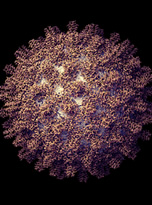Read and report vaccine reactions, harassment and failures.

Hepatitis B (HBV) is a viral infection that infects the liver and requires direct contact with infected blood or other body fluids for transmission.
Symptoms of hepatitis B generally appear in 90 days and last a few weeks. Symptoms include fever, fatigue, loss of appetite, nausea, vomiting, abdominal pain, dark urine, discolored (clay) bowel movements, joint pain and jaundice (yellowish skin or eyes).
About half of infected adults and children over the age of five will have symptoms of the disease, while many children who are under the age of five will not.
Most acute hepatitis B infections do not persist and become chronic, but if the infection lasts six months or longer and persists without being cleared, it could eventually lead to chronic liver disease, liver cancer, and death.
Hepatitis B infection is diagnosed through blood testing. Persons with an acute hepatitis B infection will have a positive hepatitis B surface antigen (HBsAg). HBsAg can be detected in the blood as early as one week after infection onset and may persist as late as nine weeks. Individuals who clear the infection will have a positive hepatitis B surface antibody (HBsAb) that can be detected in the blood. It may take six months or more for blood tests to indicate whether an acute infection has resolved or become chronic. Individuals who recover from an acute hepatitis B infection and clear the virus are immune for life.
NVIC encourages you to become fully informed about Hepatitis B and the Hepatitis B vaccine by reading all sections in the Table of Contents below, which contain many links and resources such as the manufacturer product information inserts, and to speak with one or more trusted health care professionals before making a vaccination decision for yourself or your child. This information is for educational purposes only and is not intended as medical advice.



